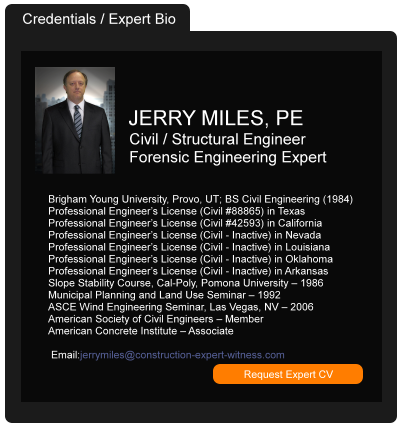Commentary: How to Limit COVID-19 Related Legal Claims
January 11, 2021 —
Joshua Lindsay, Crowell & Moring & Meagan Bachman, Crowell & Moring - ENRWe are 10 months into the global pandemic. Given the magnitude of additional costs and upended expectations and risk-allocation, we foresee a wave of disputes coming soon. Whether it is large or small depends heavily on how well project team members handle the COVID-19 project impacts now.
Reprinted courtesy of
Joshua Lindsay, Crowell & Moring (ENR) and
Meagan Bachman, Crowell & Moring (ENR)
Ms. Bachman may be contacted at mbachman@crowell.com
Mr. Lindsay may be contacted at joshlindsay@crowell.com
Read the full story... Read the court decisionRead the full story...Reprinted courtesy of
The Impact of the Russia-Ukraine Conflict on the Insurance Industry, Part One: Coverage, Exposure, and Losses
August 22, 2022 —
Michael Kopit - Lewis Brisbois(August 10, 2022) - The Russia-Ukraine conflict has far-reaching implications for the insurance industry and for insurers and insureds alike. Many corporate policy holders around the world have withdrawn or scaled back operations with Russia and/or Russian-based corporations. In doing so, the corporate policy holders left behind property, assets, and inventory in Russia and/or suffered losses in revenue. Corporate policy holders are looking to their insurers to offset the losses. It is estimated that the insurance and reinsurance markets could face losses at nearly $20 billion. S&P Global predicts that losses could reach $35 billion. Additionally, the conflict in Ukraine creates uncertainty for insurers on how to navigate the influx of claims, especially from the cybersecurity sector.
A key issue with the rise in claims is coverage. The general rule is that coverage under a policy for any loss must be evaluated by considering the policy language, the law applicable to the governing jurisdiction, and the facts surrounding the loss. Many policies contain a “war exclusion” clause, which can exclude property losses resulting from acts of war or governmental instability. However, corporate policy holders may have Political Risk Insurance, which can provide coverage for losses for items such as damaged property, seized property, and lost assets at a time of political turmoil or war. Even if a policy has Political Risk Insurance, it does not guarantee payout. Careful analysis of the policy language and facts surrounding the loss must still take place. For example, in the event of property claims, an insurer must still determine whether the loss is related to the conflict and/or whether the subject property was voluntarily abandoned or seized.
Read the court decisionRead the full story...Reprinted courtesy of
Michael Kopit, Lewis BrisboisMr. Kopit may be contacted at
Michael.Kopit@lewisbrisbois.com
Florida's New Pre-Suit Notification Requirement: Retroactive or Prospective Application?
February 05, 2024 —
Holly A. Rice - Saxe Doernberger & Vita, P.C.Florida’s newly formed Sixth District Court of Appeal (“Sixth DCA”) recently certified conflict with Florida’s Fourth District Court of Appeal on the issue of retroactive application of the pre-suit notice requirement contained in Florida Statute §627.70152.1 Earlier this year, the Fourth District Court of Appeal (“Fourth DCA”) held that the pre-suit notice provision applies retroactively, meaning, it applies to all suits filed after July 1, 2021, regardless when the insurance policy was issued.2 The Sixth DCA, in
Hughes v. Universal Property & Casualty Insurance Company,3 directly rejected the Fourth DCA’s interpretation and instead found a retroactive application of the pre-suit notice to be unconstitutional under Florida law. Prior to the Fourth DCA’s ruling, most trial courts had found no retroactive application for the pre-suit notice provision.4
In August 2021, shortly after Florida Statutes Section 627.70152 went into effect on July 1, 2021, Rebecca Hughes (“Hughes”) sued Universal Property & Casualty Insurance Company (“Universal Property”) for breach of contract after Universal Property denied her insurance claim. Hughes did not file a pre-suit notice under Section 627.70152. Universal Property moved to dismiss based on Hughes’ failure to file the pre-suit notice, arguing that the pre-suit notice requirement applies to all lawsuits filed after July 1, 2021, even if the claimant’s insurance policy was issued before the statute’s effective date. The trial court agreed with Universal Property and dismissed the lawsuit.
Read the court decisionRead the full story...Reprinted courtesy of
Holly A. Rice, Saxe Doernberger & Vita, P.C.Ms. Rice may be contacted at
HRice@sdvlaw.com
Bad Faith and a Partial Summary Judgment in Seattle Construction Defect Case
February 10, 2012 —
CDJ STAFFThe US District Court of Washington has issued a ruling in the case of Ledcor Industries v. Virginia Surety Company, Inc. Ledcor was the builder of a mixed-use real estate project in Seattle called the Adelaide Project. Ledcor purchased an insurance policy from Virginia Surety covering the project. After the completion of the project, Ledcor received complaints of construction defects from the homeowners, which they forwarded to Virginia Surety.
� Virginia Surety denied coverage on several grounds. Absent any lawsuit, Virginia claimed that there was “not yet any duty to defend or indemnify.” Further, as the policy commenced ten days after work on the project was substantially completed, Virginia cited a provision in the policy that excluded coverage for damage that occurred before the policy began. As problems included water intrusion, Virginia noted an exclusion for fungal damage. Finally, Virginia noted that it was not clear whether damage was due to Ledcor’s own actions.
� The homeowners sued over the construction defects. Ledcor settled these suits before trial. In this, they were defended by, and settlements were paid by American Home, another of Ledcor’s insurers. Ledcor claims that Virginia Surety acted in bad faith by denying coverage and by its failure to investigate the ongoing nature of the work at the project.
� The judge determined that Virginia Surety acted in bad faith when it invoked the fungus exclusion. Virginia noted that fungal damage “‘would have been’ referenced in the list of construction defects,” however, the HOAs claimed only “water stains” and “water damage,” and made no mention of mold or fungus. The court found that Virginia Surety “was not entitled to deny coverage simply because it may have suspected that mold or fungus damage existed.” The court noted that further proceedings would be needed to determine what portion of the settlement Virginia is obligated to pay.
� The court found that there were matters of fact to be determined on the further issues in the case. The judge wrote that although Virginia acted in bad faith in invoking the fungus exclusion, it still had to be determined if they were in breach of contract by failing to defend Ledcor. Ledcor still needs to show that the damages claimed by the HOA were due to work actually covered by Virginia Surety.
� Ledcor made an additional claim that Virginia Surety violated Washington’s laws concerning the insurance industry. Here, the court noted that the improper exclusion for fungus issues “constitutes a per se unfair trade practice.” Six other claims were made under this law. The court found that Virginia Surety did not misrepresent “pertinent facts or insurance policy provisions.” It also issued its denial letter promptly, satisfying the fifth provision. However, Virginia Surety did violate the second provision, in that it failed “to acknowledge and act reasonably promptly upon communications with respect to claims.” Two other issues could not be determined.
� Judge Martinez’s decision granted a summary judgment to Ledcor on the issue of bad faith. An additional summary judgment was granted that Virginia Surety violated Washington’s Insurance Fair Conduct Act. Judge Martinez did not grant summary judgment on any of the other issues Ledcor raised.
Read the court’s decision…
Read the court decisionRead the full story...Reprinted courtesy of
Lake Charles Tower’s Window Damage Perplexes Engineers
October 05, 2020 —
Autumn Cafiero Giusti - Engineering News-RecordWhen Hurricane Laura came onshore Aug. 27 as a Category 4 hurricane with sustained winds of 150 mph, it shattered windows on nearly every level of the 22-story Capital One Tower in the Lake Charles, La., business district. The glass damage is perplexing to engineers who study wind dynamics and window performance.
Reprinted courtesy of
Autumn Cafiero Giusti, Engineering News-Record
ENR may be contacted at ENR.com@bnpmedia.com
Read the full story... Read the court decisionRead the full story...Reprinted courtesy of
Business Solutions Alert: Homeowners' Complaint for Breach of Loan Modification Agreement Can Proceed Past Pleading Stage
October 08, 2014 —
Krsto Mijanovic, Annette Mijanovic, Blythe Golay - Haight Brown & Bonesteel LLPIn Fleet v. Bank of America, N.A. (No. G050049, published 9/23/14, filed 8/25/14), a California Court of Appeal held that the trial court erred in sustaining the demurrer of a lender, where the homeowners had adequately alleged causes of action for breach of contract, fraud, and promissory estoppel. The homeowners alleged that they made timely payments during the trial period plan under the modification program, but before the last payment was due, the lender foreclosed and their house was sold.
The homeowners had applied for a loan modification and were approved for a trial period plan under the modification program. They were required to make three monthly payments and verify financial hardship to permanently modify their loan. The homeowners made two payments and were told that foreclosure proceedings had been suspended. But before the third payment was due, the lender foreclosed. The trial court found that the trial period plan was not a binding loan modification agreement, so the homeowners had no right to any guaranteed loan modification.
Reprinted courtesy of Haight Brown & Bonesteel LLP attorneys
Krsto Mijanovic,
Annette Mijanovic and
Blythe Golay
Mr. Mijanovic may be contacted at kmijanovic@hbblaw.com
Ms. Mijanovic may be contacted at amijanovic@hbblaw.com
Ms. Golay may be contacted at bgolay@hbblaw.com
Read the court decisionRead the full story...Reprinted courtesy of
Does a No-Damage-for-Delay Clause Also Preclude Acceleration Damages?
January 27, 2020 —
Ted R. Gropman & Christine Z. Fan - ConsensusDocsConstruction contracts often include a “no damage for delay” clause that denies a contractor the right to recover delay-related costs and limits the contractor’s remedy to an extension of time for noncontractor-caused delays to a project’s completion date. Depending on the nature of the delay and the jurisdiction where the project is located, the contractual prohibition against delay damages may well be enforceable. This article will explore whether an enforceable no-damage-for-delay clause is also a bar to recovery of “acceleration” damages, i.e., the costs incurred by the contractor in its attempt to overcome delays to the project’s completion date.
Courts are split as to whether damages for a contractor’s “acceleration” efforts are distinguishable from “delay” damages such that they may be recovered under an enforceable no-damage-for-delay clause. See, e.g., Siefford v. Hous. Auth. of Humboldt, 223 N.W.2d 816 (Neb. 1974) (disallowing the recovery of acceleration damages under a no-damage-for-delay clause); but see Watson Elec. Constr. Co. v. Winston-Salem, 109 N.C. App. 194 (1993) (allowing the recovery of acceleration damages despite a no-damage-for-delay clause). The scope and effect of a no-damage-for-delay clause depend on the specific laws of the jurisdiction and the factual circumstances involved.
There are a few ways for a contractor to circumvent an enforceable no-damage-for-delay clause to recover acceleration damages. First, the contractor may invoke one of the state’s enumerated exceptions to the enforceability of the clause. It is helpful to keep in mind that most jurisdictions strictly construe a no-damage-for-delay clause to limit its application. This means that, regardless of delay or acceleration, courts will nonetheless permit the contractor to recover damages if the delay is, for example, of a kind not contemplated by the parties, due to an unreasonable delay, or a result of the owner’s fraud, bad faith, gross negligence, active interference or abandonment of the contract. See Tricon Kent Co. v. Lafarge N. Am., Inc., 186 P.3d 155, 160 (Colo. App. 2008); United States Steel Corp. v. Mo. P. R. Co., 668 F.2d 435, 438 (8th Cir. 1982); Peter Kiewit Sons’ Co. v. Iowa S. Utils. Co., 355 F. Supp. 376, 396 (S.D. Iowa 1973).
Reprinted courtesy of
Ted R. Gropman, Pepper Hamilton LLP and Christine Z. Fan, Pepper Hamilton LLP
Mr. Gropman may be contacted at gropmant@pepperlaw.com
Read the court decisionRead the full story...Reprinted courtesy of
City Development with Interactive 3D Models
October 23, 2018 —
Aarni Heiskanen - AEC BusinessThe Finnish city of Hyvinkää has developed a unique internet service for collaborative 3D city planning. It gives real estate owners, investors, developers, designers, authorities, and citizens easy-to-use tools to publish their 3D plans and ideas for the built city environment.
Participants can comment on the 3D plans directly in the city model. The 3D app is integrated with Facebook, which enables further conversation.
Building the 3D City Model
Päivi Tiihonen is the manager of the information services unit of the city’s technical and environmental sector. The city started building a browser-based 3D city model when Tiihonen assumed her position in 2014.
Read the court decisionRead the full story...Reprinted courtesy of
Aarni Heiskanen, AEC BusinessMr. Heiskanen may be contacted at
aec-business@aepartners.fi


































































